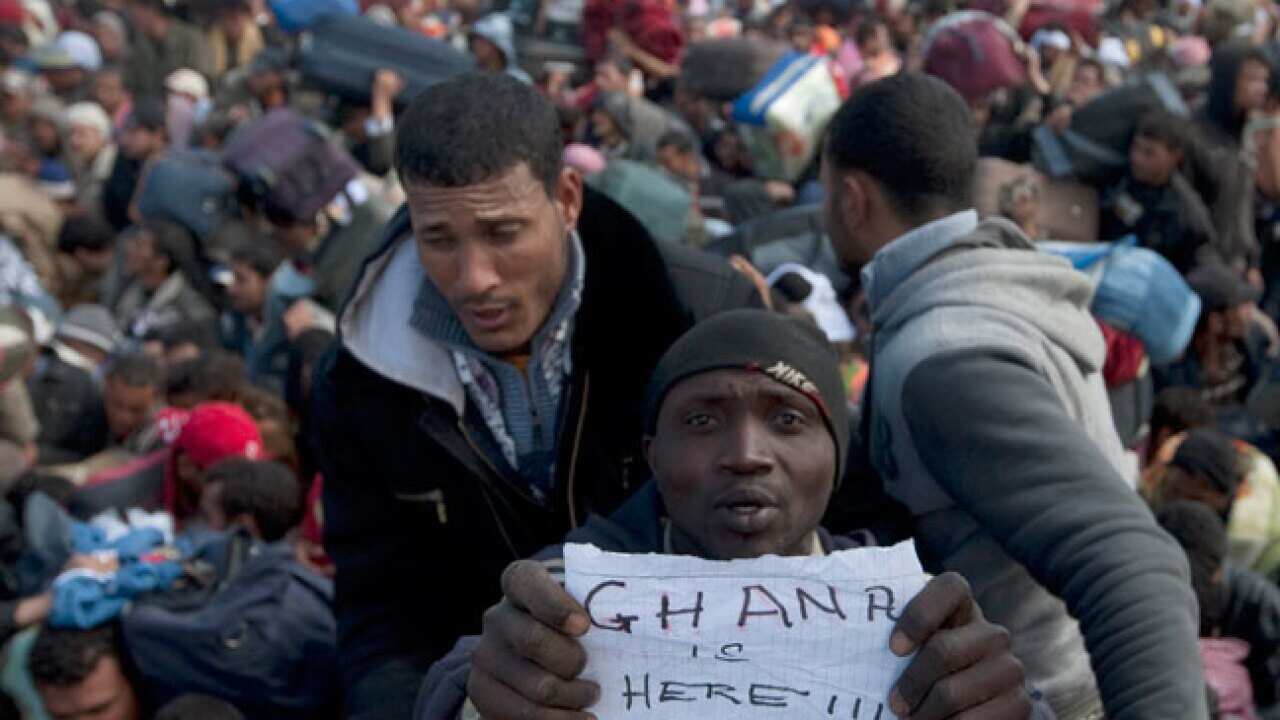The UN refugee agency and an international migrant group has issued an urgent appeal for the mass evacuation of tens of thousands of people fleeing into Tunisia from strife-torn Libya.
Meanwhile, the UN also suspended Libya from its Human Rights Council, as the US mulled sending in its airforce to stop long-time leader Muammar Gaddafi from attacking protesters with fighter jets.
"The International Organization for Migration and the United Nations High Commissioner for Refugees are urgently appealing to governments for a massive humanitarian evacuation of tens of thousands of Egyptians and other third country nationals who have fled into Tunisia from Libya," the two agencies said in a statement.
They noted that more than 75,000 people have crossed the Tunisian border since February 19, and that some 40,000 more are waiting on the Libyan side of the border to enter the neighbouring north African state.
"The two organisations deem this operation essential as the overcrowding at the border worsens by the hour," they said.
The two agencies added that they have set up a humanitarian evacuation programme, but needed governments to provide "massive financial and logistics" aid, including planes, boats and experts.
Listen to an interview with Hicham Hassan, a specialist for the International Committee of the Red Cross, who describes the current situation in Benghazi and the humanitarian crisis on the Libyan borders.
European countries send help
Italian Prime Minister Silvio Berlusconi decided late Tuesday to send humanitarian aid to help 10,000 refugees fleeing Libya for Tunisia, the ANSA news agency reported.
Berlusconi called British Prime Minister David Cameron during the meeting to inform him of the decision in the hope that other countries would follow suit, ANSA quoted sources at the meeting as saying.
Earlier Tuesday, the UNHCR warned that the situation on Libya's border with Tunisia was reaching crisis point, stressing that tens of thousands were stuck and awaiting onward transportation to ferry them to other cities.
"It's critically important that this onward transport becomes available to avoid the crisis," stressed Melissa Fleming, spokeswoman of the UNHCR.
The spokeswoman also expressed concern that some waiting at the border to cross had been in the queue for as long as three days and that sub-Saharan Africans were in particular not being allowed into Tunisia.
"We're very concerned that racism could be a factor" blocking the exit of sub-Saharan Africans," she said.
"All borders, land, air and sea should be opened in a non-discriminatory manner. Anyone who needs to flee should be able to flee," she added.
Thousands amass at border
Meanwhile, at the Libyan border with Egypt, 69,000 people have crossed since February 19.
Many are Egyptians and have been transported to other cities across the country, with only 3,000 still awaiting transport, UNHCR said.
A violent backlash unleashed by Moamer Kadhafi's regime against protestors has sparked a mass exodus from the country, mainly of migrant workers.
Share

